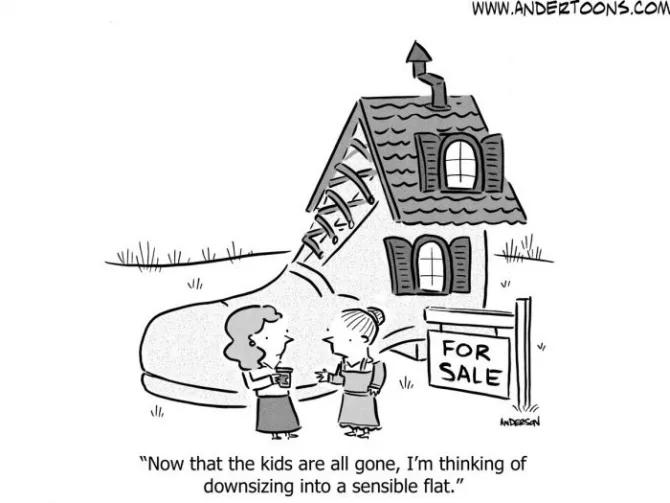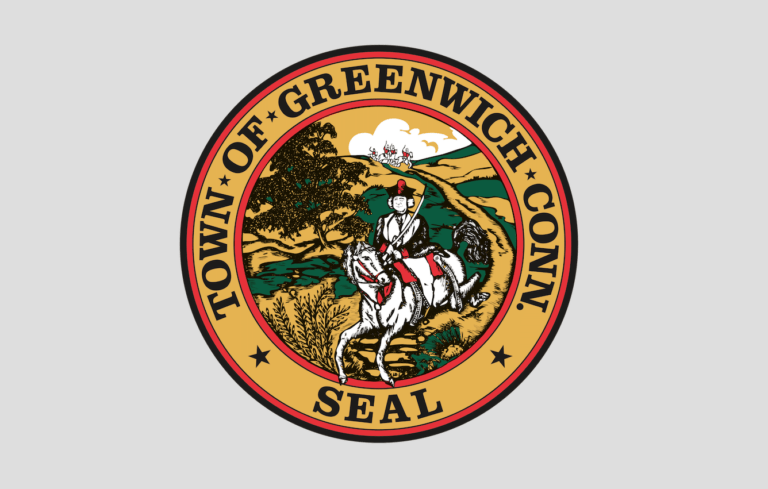Relocating and letting go of a lifetime of possessions is one of the most emotional transitions many older adults face. According to The Gerontologist, it ranks among the top three most stressful events for seniors, alongside the death of a spouse and a serious health crisis. Even when a move makes sense, many older adults feel paralyzed by the process. Why is it so daunting—and how can we help?
Why Downsizing is so Difficult
It Feels Like a Loss of Control
More than 75 % of older adults want to stay in their homes and communities, yet nearly half believe they’ll need to move eventually, often due to cost, safety or isolation. Keeping up a large home with grounds can be very expensive. For others, a move is needed because of safety issues, such as unmanageable stairs, rooms that cannot accommodate assistive devices like walkers and wheelchairs, or bathtubs that present a fall risk. Isolation is also a driver. If someone feels pressured by family, the process can stir up resentment, anxiety or grief.
Home Equals Identity
A home often represents decades of memories and accomplishments. Many people’s identity is closely tied to their home, their history of raising a family and having made connections within their community. They fear being unknown and perhaps undervalued when they move. They enjoy the familiarity of the neighborhood, local haunts, and the familiar rhythms. I worked with a prominent architect who had designed his stunning home (complete with many sets of stairs and a steep driveway). He could barely move within the home due to a fear of falling on those stairs and was “locked in” due to the steep driveway. Despite the obvious safety risks and his isolation, he could not bear to leave the beautiful home he had designed and loved.
Objects Hold Powerful Memories
Many possessions, even unused ones, carry deep emotional value. They bring back memories of loved ones and good times. Letting go of a beloved dining table or dusty ski gear means confronting the end of a chapter—and that’s painful. Holding on to these things is often a coping mechanism to avoid acknowledging that that phase of life is over.
It’s Painful When Treasures are Devalued
When children don’t want their parents’ furniture, or items are labeled “worthless,” it can feel like a personal rejection. “No one wants brown furniture” is a phrase I hear frequently. It might be true but it can feel like a cruel insult to the those who collected and loved their antiques. Seniors often feel their taste, and by extension their life, is being dismissed.
It’s Scary to Start Over
A client summed it up perfectly – “I know it’s time to move but I fear I won’t be able to connect with new friends. Most people don’t see beyond the fact that I’m old. Gone are the days of easily bonding in the carpool lane and in the playground.” Leaving behind familiar people and routines is intimidating and many worry they will never make new connections—or worse, that others will only see their age.
Physical and Cognitive Challenges Can Make the Process Challenging
Downsizing requires sorting, decision-making and stamina. For those who might be struggling with executive functioning and memory issues, it may seem unsurmountable. For those with limited mobility, it can feel impossible.
How Families Can Help
Reframe the Decision from “I Have To Move” …..to “I Choose to Move.”
Help loved ones feel empowered rather than forced. If someone feels forced to move, they will naturally feel anger, loss of control and resentment. If a senior is considering downsizing, let them know that you appreciate that they are not going to leave the chore of downsizing process to their children. Let them know you believe there is something noble about them deciding to use their resources more wisely. “For the record mom, you are giving me the gift of not worrying about you. You can now focus your energy and money on what really matters. Maybe this will mean more quality time with me and less hassles! I’m grateful to you for being so proactive.” This positive reframing can ease fear and resistance.
Honor the Memories
Take the time to survey the home, photograph rooms and ask about meaningful items. Let your loved one tell their stories. Ask questions and be attentive to the answer. It’s a great way to validate that these objects were part of a happy journey and that you and your family appreciate all the associated memories. Gently suggest that donating or gifting items is a generous act, not a loss. “Mom, I know you will miss your beautiful furniture but just imagine you are giving your treasures a new life with a deserving new family.”
Support Social Connection
Seniors often fear loneliness after a move. Help your loved one maintain ties with old friends through regular calls/ zooms/lunches. Help organize regular transportation to see friends or teach them to use ride-share Apps. Encourage them to join clubs or senior centers. In Greenwich, The Wallace Center (www. greenwichwallacecenter.org) offers a full calendar of activities for those over 55+. The Stamford Senior Center also has robust programming and an active membership. (www.stamfordseniorct.org)
Bring in Professionals to Help
When a job seems overwhelming, bring in expert help. Senior move managers and professional organizers are trained specifically to assist seniors in handling the logistics with compassion and efficiency—from decluttering and estate sales, to packing, moving, and settling in.
Here are some local pros frequently recommended by senior advisors:
Patty Gabal – Stardust Move Management (Certified Senior Move Manager and RN) www.stardustmoves.com
Jackie Randal – The Settler Concierge move management and professional organizational services. www.thesettlerhome.com
Andrew Beckman /Alan Hirsh– Caring Transitions (Works locally and is part of a national network which is helpful for out of state moves) www.caringtransitionsofchappaquastamford.com
Crissy Robinson – Above and Beyond CT (concierge move and organizing services run by Greenwich residents) www.aboveandbeyondct.com
Andrea Ruby – Living Forward www.livingforwardmm.com
Adam Plotnick Moves adamjplotnick@hotmail.com
Matt Bair Organizing www.mattbaier.com
The Upside of Letting Go
The later phase of life can be incredibly rich and rewarding. Tackling the downsizing/moving is the first step in setting up you and your loved one to succeed in this later phase. Downsizing isn’t just about loss—it’s about setting the stage for a safer, easier, more connected chapter of life. It can be challenging, but helping your loved one navigate it with empathy, patience and the right support can make all the difference.
Mimi Santry is a local senior care and housing advisor with Assisted Living Locators. Edited by Stapley Russell.




